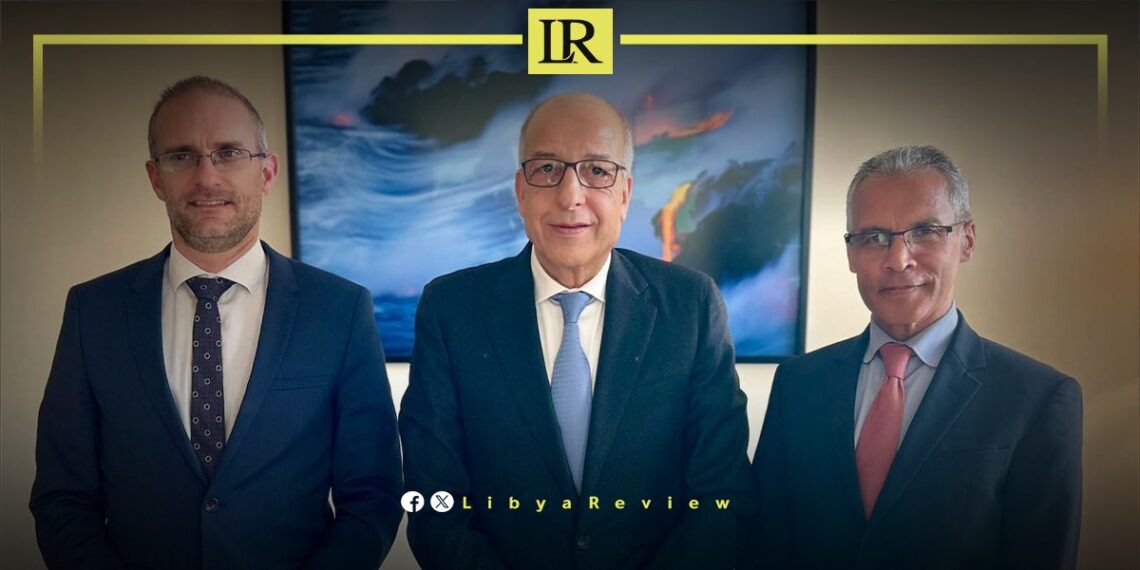On Saturday, the Governor of the Central Bank of Libya (CBL), Al Siddik Al Kabir held discussions with key French figures in Paris, including Emmanuel Emmanuel Suquet, the Deputy Director for North Africa and the Middle East, and Mostafa Mihraje, France’s Ambassador to Libya, alongside a cadre of officials.
During the meeting, held at the French Ministry of Foreign Affairs, the attendees discussed several pivotal topics crucial for Libya’s financial future. Foremost among these was the CBL’s instrumental role in ensuring monetary and financial stability in a nation that has faced years of division and conflict.
The discussions also touched upon the significant strides made towards the unification of the CBL, a critical step in mending the nation’s fiscal divisions and laying the groundwork for a cohesive economic policy framework.
A primary focus of the talks was the imperative of establishing a unified budget for the fiscal year 2024. This ambitious goal necessitates a collaborative effort, bringing together the Financial Committee of the Libyan Parliament and other relevant entities to craft a budget that transcends political and regional divides. This ensures equitable economic development across the nation.
The meeting also delved into the challenges posed by the circulation of unregulated Libyan currency. This has significant implications for the parallel market exchange rates. This issue underscores the complexities of Libya’s financial landscape, where currencies of unclear origin can destabilise the economy and undermine efforts towards financial transparency and stability.
Libya has been in chaos since a NATO-backed uprising toppled longtime leader Moammar Gaddafi in 2011. The county has for years been split between rival administrations.
Libya’s economy, heavily reliant on oil, has suffered due to the ongoing conflict. The instability has led to fluctuations in oil production and prices, impacting the global oil market and Libya’s economy.
The conflict has led to a significant humanitarian crisis in Libya, with thousands of people killed, and many more displaced. Migrants and refugees using Libya as a transit point to Europe have also faced dire conditions.
The planned elections for December 2021 were delayed due to disagreements over election laws and the eligibility of certain candidates. This delay has raised concerns about the feasibility of a peaceful political transition.


